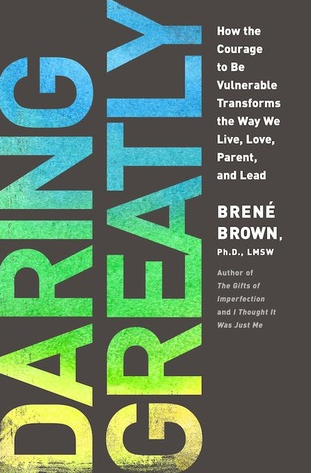Vulnerability – whose safety we can’t ensure, who may stay in our lives or may leave without a moment’s notice, who may be loyal to the day they die or betray us tomorrow—that’s true vulnerability. Love is uncertain. It’s incredibly risky. And loving someone leaves us emotionally exposed.
Most people want to experience other people’s vulnerability but don’t want to be vulnerable. Vulnerability is courage in you and inadequacy in me. I’m drawn to your vulnerability but repelled by mine.
It is important to share appropriately, with boundaries, this means sharing with people with whom we’ve developed relationships that can bear the weight of our story. The result of this mutually respectful vulnerability is increased connection, trust, and engagement. Vulnerability without boundaries leads to
disconnection, distrust, and disengagement.
The most dangerous in terms of corroding the trust connection, is disengagement. When the people we love or with whom we have a deep connection stop caring, stop paying attention, stop investing, and stop fighting for the relationship, trust begins to slip away and hurt starts seeping in. Disengagement triggers shame and our greatest fears—the fears of being abandoned, unworthy, and unlovable. What can make this covert betrayal so much more dangerous than something like a lie or an affair is that we can’t point to the source of our pain—there’s no event, no obvious evidence of brokenness.
With children, actions speak louder than words. When we stop requesting invitations into their lives by asking about their day, asking them to tell us about their favourite songs, wondering how their friends are doing, then children feel pain and fear
A dangerous and debilitating belief is: “I am what I accomplish and how well I accomplish it. Please. Perform. Perfect.”
Perfectionism can hamper achievement, instead best to opt for healthy striving, this is self-focused: How can I improve? Where as perfectionism is other-focused: What will they think?
Consider not what you do it is why you do it – is it to numb things or for pleasure.
Vikings those with power over others, and Victims, those that are powerless by some can be seen as the only two behaviour options. Viking mentality can perpetuate behaviours such as dominance and unjust control, in addition can worsen a sense of ongoing victimhood for people who constantly struggle with the idea that they’re being targeted or unfairly treated. Some people erroneously are resigned to have a Victim mentality simply because they didn’t want to become what they perceives as the only alternative opinion—Vikings. Reducing our life options to such limited and extreme roles leaves very little hope for transformation and meaningful change.
Many people are afraid of failure and ridicule so don’t try to stand out. Remember, that critics at times just want attention select who you are willing to listen to. When interacting with others it is important to try to see the human in the other people you are interacting with.
The author performed grounded theory researcher – start with no hypothesis but study a topic go where the interviews take you then compare to known literature. She found people fell into two groups, those who feel a deep sense of love and belonging, and those who struggle for it. The only one variable separates the groups was that those who feel lovable, who love, and who experience belonging simply believe they are worthy of love and belonging.
In part this is from how people were raised. Raising children who believe in their worthiness requires us to model that journey and that struggle. The important thing to know about worthiness is that it doesn’t have prerequisites, for example when someone gets a job or a car.
Shame and guilt are different. When interacting with children rather than criticise them saying do this or that simply actually show that you are pleased to see them and don’t judge.
Wholeheartedness is like the North Star: We never really arrive, but we certainly know if we’re headed in the right direction.
If you want to learn see what other authors think about relationships check this book summary or a thought provoking book about different types of relationship check this one out.



